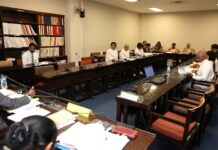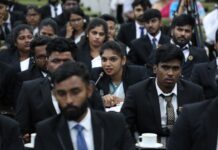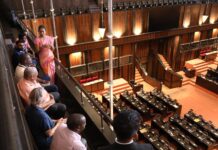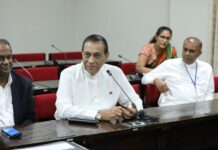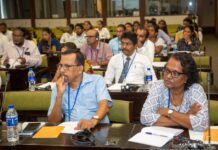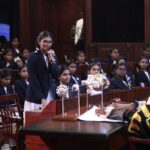Sri Lanka Collective for Consensus (SLCC) yesterday, September 21, welcomed President Gotabaya Rajapaksa’s call for a dialogue with the Tamil Diaspora to explore ways and means of addressing reconciliation issues through domestic systems.
Following is the text of the statement issued by the SLCC:
“We are glad to note the stand of the President at the UN General Assembly in New York and the Foreign Minister at the UN Human Rights Council in Geneva. We are pleased that they have spoken of carrying on those changes that they had spoken to us about and which shows commitment.
In our meetings with members of the government, including the president, we presented the issues that we felt needed to be addressed by the government. These included bringing the PTA into line with international standards, releasing long term prisoners held under it, addressing the issue of missing, and the Muslim burials and targeting of Muslims, releasing of land in the north and halting continuation of land grabs especially grazing land in the east, implementing the 13th Amendment in full and holding elections to the provincial councils, appointing of appropriate persons to the vacancies in the Commissions and obtaining NGO inputs to the proposed NGO law.
The President’s offer to talk to the Tamil Diaspora is a positive initiative. We believe this has to be preceded by changes on the ground that meets the needs of the people, especially those who have suffered due to the war, and not be words alone as the people have heard them many times before. We ask for time bound commitments to be implemented as confidence building measures. Another confidence building measure would be to lift the ban on those Diaspora groups that have credibility both within Sri Lanka and internationally prior to commencing the talks.
The President’s intention to deal with contentious issues requires the support of the parties in the opposition, especially the minority parties which have democratic mandates with them. As civil society we will support the effective functioning of the already established reconciliation mechanisms such as the Office of National Unity and Reconciliation (ONUR), Office on Missing Persons (OMP) and Office for Reparations (OR) by the correct dissemination of information and seeking appropriate leadership within them. In these circumstances, we will be happy to work collaboratively with the government to open a new door to reconciliation in Sri Lanka.”




